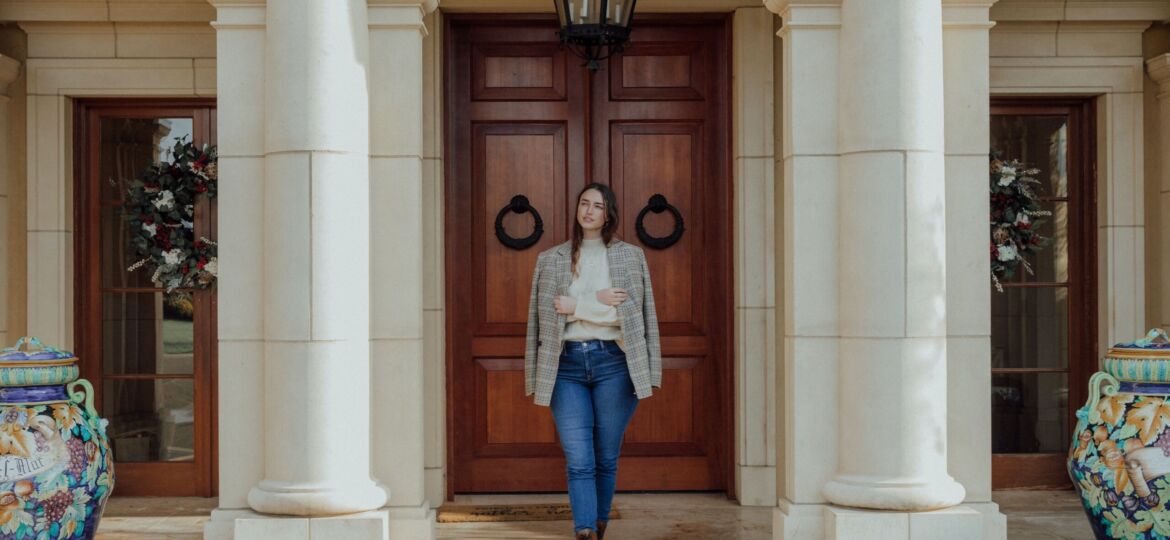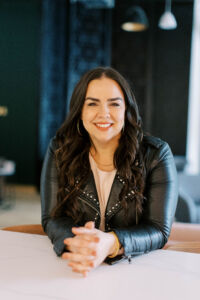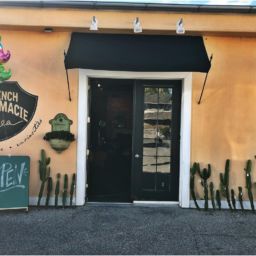

Created in partnership with Colleen Hungerford Real Estate.
Mavens, are you looking for your next lucrative investment? Look no further than your own home.
Investing in your home has many benefits beyond having your dream kitchen or walk-in closets, Carmel-based realtor and Indy Maven partner Colleen Hungerford said. For starters, looking at your home as an investment can help to build generational wealth and secure financial independence that you otherwise wouldn’t achieve through a regular 9-5 job.
“If you’re thinking about building wealth over time, wealth doesn’t [just] mean cash in the bank,” Hungerford said. “It means that you have access or availability to different assets and income sources, so your house becomes a way to accumulate wealth.”
Investing in your home may seem a little daunting at first, but Hungerford said it doesn’t have to be. She’s offering some of her sage advice in “Building Wealth Through Real Estate: A Workshop with Colleen Hungerford” at Maven Space on Oct. 26 where she will walk attendees through the basics.
The workshop will help people gain an understanding of investing in real estate, important terms, tools, resources and tips to help you start building your dream life. Whether you’re in your 20s or 80s, Hungerford wants you to know anyone can do it, and here’s how:
Start now
 The best time to think about investing in your home is right now — yesterday even, Hungerford said. Owning a home over time creates equity in the home — which is the difference between the value of your home and how much you owe on a mortgage. Hungerford said there are several different ways you can access that money.
The best time to think about investing in your home is right now — yesterday even, Hungerford said. Owning a home over time creates equity in the home — which is the difference between the value of your home and how much you owe on a mortgage. Hungerford said there are several different ways you can access that money.
“There are always special circumstances, but in general, even incrementally, even fractionally, every single day that you own your home or a property, you are making money on that property,” Hungerford said.
So, technically anytime you purchase real estate you are investing.
Pay attention to location
The location of your home or investment property will always be the most important aspect, Hungerford said. Of course, the criteria of the location will differ between your own home and a potential investment property, but the location will always be what creates the most value and equity in the home.
“Because you can change your home; you can knock it down and build a new one,” Hungerford added. “But you’re never going to be able to change the location.”
Secure Financing
The simplest way is to take out a loan — yes, like a mortgage loan for your primary residence.
Or, if you have built a lot of equity in your home, Hungerford said you can pull the money out of your house through a cash-out refinance.
“You refinance your home, and you pull out the cash value of the equity of your home at some percentage, and you can use that money to buy an investment property,” Hungerford said. “Or you can get what is called a Home Equity Line of Credit … and you can use that money to take the money from your home and use that to buy an investment property.”
Of course, there are more advanced methods, such as OPM (Other People’s Money) and Seller refinancing. Hungerford will break down all the ways to finance during her workshop.
Bring in partners
 Having a partner to go halfsies on an investment property can be an amazing option, Hungerford said, but it will be dependent on your relationship with the person and the agreement you have in place.
Having a partner to go halfsies on an investment property can be an amazing option, Hungerford said, but it will be dependent on your relationship with the person and the agreement you have in place.
“It’s definitely a way to bring less money to the table when you are starting,” she said. “It’s just important to make sure that all the terms are very clear and that you have some sort of contract with that person — like a legal contract, not like a handshake – so that there is an understanding of how profits are going to be split, who’s maintaining the property, who’s responsible if, you know, the air conditioning goes out.”
Take advantage of LOC and HELOC
Picture this: You buy a home, and you get a Home Equity Line of Credit. Let’s say that amount is $100,000 (sounds nice, right?). Now let’s say you use that $100,000 to pay for your kid’s school or buy a car or buy an investment property. That $100,000 is — for all intents and purposes — income, but it is not taxed by the government as income, Hungerford said.
“What a lot of wealthy people will do is they’ll use these lines of credit as ‘income,’ as how they pay for things,” Hungerford said. “Then they’re not paying taxes on that quote unquote ‘income.’”
It is all perfectly legal, but always check with your tax advisors, she said.
Keep trying, you got this!
A large part of real estate and investing is learning and trying and failing and having the right mindset to continue, she said. It is accessible to anybody; you just have to figure out how to do it.
“What I want to make sure that we’re talking about is not gatekeeping these things and letting people know that there are options,” Hungerford said. “This is why it’s important to invest in real estate when it feels like it’s hard or it feels like it’s impossible, or even why it’s important to buy a home as soon as you can.”
“Building Wealth Through Real Estate: A Workshop with Colleen Hungerford,” takes place on Oct. 26 from 6-8 p.m. at Maven Space, 433 N. Capitol Ave., #100. Tickets are free for Mavens, $20 for non-members, and available on Eventbrite.
Chloe McGowan is a dedicated plant parent, herbal tea lover, avid soy candle burner, and a contributor for Indy Maven. Follow her on Twitter @chloe_mcgowanxx.
All of our content—including this article—is completely free. However, we’d love it if you would please consider supporting our journalism with an Indy Maven Digital membership.

















